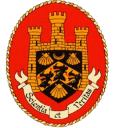
PRE
Why Study PRE at The Purbeck School?
PRE is about people in our multi-cultural society and global world. People’s diverse beliefs, values, cultures, actions, and customs. PRE encourages students to be inquisitive, to step into other people’s shoes and learn about and from different beliefs and practices. PRE encourage students to discuss challenging questions about human life, beliefs, experiences, communities and global contexts. PRE encourages students to become Philosophers, discover, explore and consider many different answers to questions about human identity, meaning and value of life for instance why are we here, why do people do this, and to continue on their own personal, moral, social and spiritual journey. PRE is very much concerned with the world to learn from the past but also the here and now, encouraging students to debate big issues, for example “Can war ever be justified? Who is responsible for the environment?’
Above all, studying PRE is fun; it includes a wide variety of learning styles and activities which help students to figure out the how and why, to think outside the box. PRE encourages students to persevere in sometimes difficult topics of discussion, always allowing the opportunity for students to reflect, respond, weigh up what is right and wrong and respect each and everyone’s view point allowing them to be in a safe environment to explore difficult issues. PRE gives students many of the skills needed to equip them to stand on their own two feet outside the school gate, like empathy and respect for a range of views, critically analyse and problem solve, see things from a variety of perspectives, enabling students to develop in their own personal, moral, social and spiritual journey promoting and upholding tolerance and respect.
How is PRE taught?
- KS3 – Students are taught in mixed ability classes for three hours each fortnight.
- KS4 – GCSE- Students are taught in mixed ability classes for five hours each fortnight.
- KS4- Core PRE- Students are taught in mixed ability groups once a fortnight.
The PRE department vision / ambition
Religion continues to play a key role in the world today, influencing events nationally and internationally, and impacting on the lives of everyone, whether they are a follower of a particular faith or hold no religious beliefs.
At The Purbeck School, we aim to:
- Advocate an understanding of world views, through studying a knowledge rich and diverse range of cultures, beliefs, practices, events and issues with local, national and international significance.
- Expand student’s cultural capital, enabling students to reflect on their beliefs and actions and those of others. To challenge misconceptions about religions and religious believers.
- Encourage learners to ‘think like a Philosopher’ to question and analyse and have an inquisitive approach to the philosophical and ethical issues and be able to apply them to their everyday life.
- Develop empathetic and engaged citizens through focusing on beliefs events and issues with a challenging ethical or moral dimension, such as those relating to belief, practice, class, gender, race, intolerance and discrimination.
Key concepts
The key concepts that The Purbeck School Philosophy Religion and Ethics curriculum aims to support student progression in are:
- To learn about different world views, and know and understand a range of religions, beliefs and teachings and stories.
- Recognise the similarities and diversity which exists within and between religious traditions and world views both locally and globally.
- Appreciate and appraise the nature, significance and impact of different ways of life and ways of expressing meaning.
- Examine philosophical ideas and explain different scholarly views and their impact on western thought.
- Build their own critical responses to questions about identity, diversity, and ethical issues.
- To reflect and evaluate their own and world views, express their ideas with increasing discernment
- The purpose of Religious Studies is to equip pupils with the knowledge and skills required to understand religion, engage in meaningful discussions about religion and critically evaluate the role, purpose and influence of religion in history, politics, the development of the arts and the lives of communities both locally and globally.
Useful Links
Long Term Overview
Parental right to withdrawal
In the UK, parents have the right to withdraw their children from RE on the grounds that they wish to make their own provision. This alternative will be the parents’ responsibility. This right of withdrawal exists for all pupils in all types of school, including schools with and without a religious designation. Students aged 18 or over have the right to withdraw themselves from RE. Parents also have the right to withdraw their child from part of RE and can do so without giving any explanation.



















